Top 10 envelope making machine in China introduce,list main products and website if have
1. Wenzhou Dakiou Packaging Machinery Co., Ltd.
– Main Products: Envelope making machines, paper bag machines, paper cutting machines.
– Website: [dakiou.com](http://www.dakiou.com/)
2. Wenzhou Caishun Packing Machinery Co., Ltd.
– Main Products: Envelope making machines, paper bag machines, die cutting machines.
– Website: [caishunpack.com](http://www.caishunpack.com/)
3. Ruian Lixin Printing Machinery Co., Ltd.
– Main Products: Envelope making machines, printing machines, slitting machines.
– Website: [rx-printer.com](http://www.rx-printer.com/)
4. Wenzhou Guowei Printing Machinery Co., Ltd.
– Main Products: Envelope making machines, flexo printing machines, paper bag machines.
– Website: [guowei-machine.com](http://www.guowei-machine.com/)
5. Wenzhou Zhengrun Machinery Co., Ltd.
– Main Products: Envelope making machines, book binding machines, case making machines.
– Website: [zhengrunmachine.com](http://www.zhengrunmachine.com/)
6. Ruian Royal Machinery Co., Ltd.
– Main Products: Envelope making machines, window patching machines, folder gluer machines.
– Website: [royalmachinery.net](http://www.royalmachinery.net/)
7. Wenzhou Hongye Machinery Co., Ltd.
– Main Products: Envelope making machines, bag making machines, die cutting machines.
– Website: [hongyemachinery.com](http://www.hongyemachinery.com/)
8. Wenzhou Tiancheng Machinery Co., Ltd.
– Main Products: Envelope making machines, paper cup machines, die cutting machines.
– Website: [tianchengmachine.com](http://www.tianchengmachine.com/)
9. Wenzhou Winrich Machinery Co., Ltd.
– Main Products: Envelope making machines, paper bag machines, die cutting machines.
– Website: [winrichmachine.com](http://www.winrichmachine.com/)
10. Wenzhou Changs Machinery Co., Ltd.
– Main Products: Envelope making machines, paper bag machines, window patching machines.
– Website: [changsmachine.com](http://www.changsmachine.com/)
These companies are leading manufacturers in China, offering a wide range of envelope making machines along with other related packaging machinery.
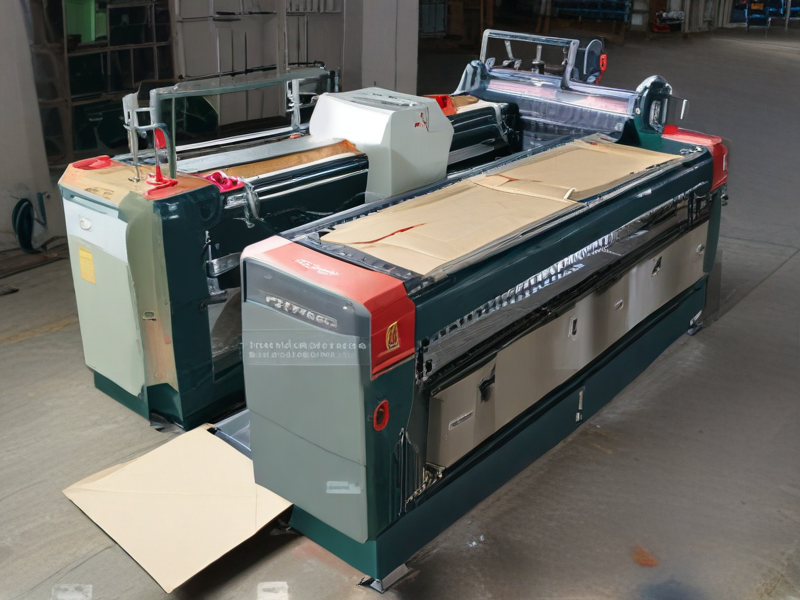
Types of envelope making machine
Envelope making machines come in various types, each designed to cater to specific production needs and types of envelopes. Here are the main types:
1. Automatic Envelope Making Machines:
– High-Speed Automatic Envelope Making Machines: These machines are designed for large-scale production. They handle cutting, folding, gluing, and sealing at high speeds, making them ideal for industries requiring mass production.
– Automatic Window Patching Machines: These are specialized for envelopes with windows. They automatically cut and apply the window film during the envelope manufacturing process.
2. Semi-Automatic Envelope Making Machines:
– These machines require some manual intervention but automate most of the processes, such as cutting and folding. They are suitable for medium-sized production batches and provide a balance between manual labor and automation.
3. Manual Envelope Making Machines:
– These are basic machines that require full manual operation. They are ideal for small-scale or bespoke envelope production where customization and attention to detail are crucial.
4. Security Envelope Making Machines:
– Specifically designed for producing security envelopes, these machines incorporate features like inner security patterns and secure sealing mechanisms to ensure the privacy of the contents.
5. Pouch Envelope Making Machines:
– These machines are tailored for making pouch-style envelopes, which are commonly used for packaging small items. They handle the unique folding and sealing requirements of pouch envelopes.
6. Rotary Envelope Making Machines:
– Utilizing a rotary mechanism, these machines are efficient for high-speed production and are capable of handling various envelope sizes and styles.
Each type of envelope making machine is built to address specific production needs, ranging from high-volume industrial manufacturing to low-volume, customized production. The choice of machine depends on factors like production scale, envelope type, and desired automation level.
Pros and Cons of Using envelope making machine
Using an envelope making machine has several pros and cons:
Pros:
1. Efficiency:
– High Production Speed: Machines can produce envelopes much faster than manual methods, significantly increasing output.
– Consistency: Ensures uniformity in size, shape, and quality, reducing errors and wastage.
2. Cost-Effective:
– Reduced Labor Costs: Automating envelope production lowers the need for manual labor, reducing associated costs.
– Bulk Production: Ideal for large-scale production, lowering per-unit cost when producing envelopes in bulk.
3. Versatility:
– Customizability: Modern machines can produce various envelope types and sizes, accommodating diverse requirements.
– Material Handling: Capable of working with different materials and finishes, enhancing product variety.
4. Quality Control:
– Precision: Machines ensure precise folding, cutting, and sealing, improving overall product quality.
– Reliability: Consistent performance reduces the likelihood of defects.
Cons:
1. Initial Investment:
– High Cost: The initial cost of purchasing and setting up envelope making machines can be substantial.
– Maintenance: Ongoing maintenance and repair costs can add up, requiring skilled technicians.
2. Operational Complexity:
– Training Required: Operators need to be trained to use the machines effectively, which can be time-consuming and costly.
– Technical Issues: Machines may experience technical problems, causing downtime and production delays.
3. Space Requirement:
– Large Footprint: Machines require significant floor space, which can be a constraint for smaller operations.
4. Dependency:
– Power and Resources: Dependence on a steady supply of power and raw materials can be a limitation, especially in areas with inconsistent supply.
In summary, while envelope making machines offer significant efficiency, cost savings, and quality improvements, they require substantial initial investment, training, and maintenance, making them more suitable for large-scale operations.
envelope making machine Reference Specifications (varies for different product)
An envelope-making machine’s specifications can vary based on the product type, production capacity, and technological features. Here are some reference specifications commonly found in such machines:
1. Speed and Capacity:
– Production Speed: 30,000 to 40,000 envelopes per hour.
– Envelope Size Range: From small (e.g., 90×60 mm) to large (e.g., 360×250 mm).
2. Materials:
– Paper Weight: Handles a range from 70 gsm to 150 gsm.
– Material Types: Compatible with a variety of materials such as kraft paper, offset paper, and specialty papers.
3. Technical Features:
– Cutting Mechanism: Rotary or flatbed cutting options.
– Folding Mechanism: Adjustable folding modules for different envelope types (e.g., wallet, pocket, banker).
– Glue Application: Hot melt and cold glue systems for precise sealing.
– Printing Integration: Inline flexographic printing for customization.
4. Control System:
– Automation: Advanced PLC (Programmable Logic Controller) for precise control.
– Touch Screen Interface: User-friendly operation and easy adjustment settings.
– Sensors and Safety: Optical sensors for error detection, automatic shutoff for jams, and safety guards.
5. Adjustability and Customization:
– Die-Cutting: Custom die-cutting for window envelopes.
– Feeder Capacity: High-capacity feeders for continuous operation.
– Output Stacker: Adjustable stacking options for different envelope sizes.
6. Power and Dimensions:
– Power Consumption: Typically ranges from 15 kW to 25 kW.
– Machine Dimensions: Varies widely, average footprint might be around 5m x 2m x 2m (LxWxH).
7. Optional Features:
– Window Patching Unit: For adding transparent windows to envelopes.
– Embossing Unit: For adding textures or logos.
– Barcode Integration: For tracking and automation in mail sorting systems.
These specifications help manufacturers select machines tailored to their production needs, ensuring efficiency and high-quality output.
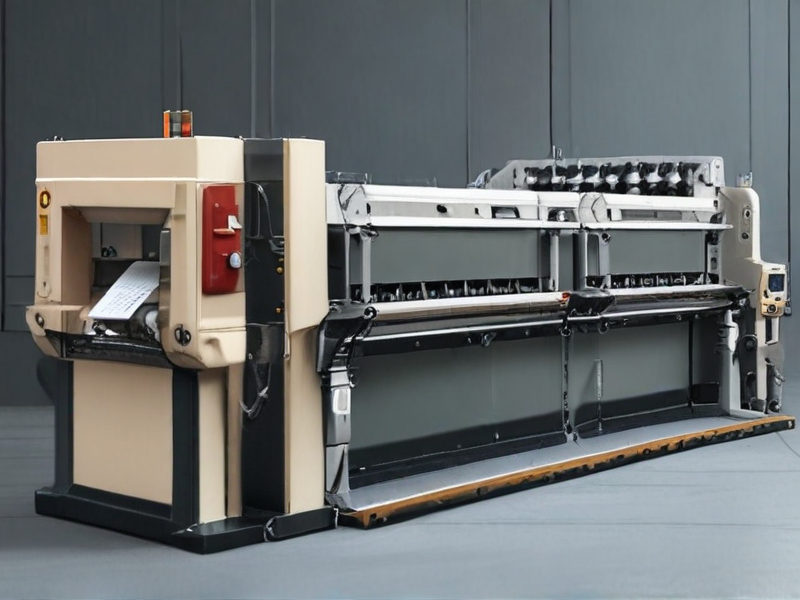
Applications of envelope making machine
Envelope making machines are pivotal in various industries due to their efficiency and versatility. Here are some key applications:
1. Mailing and Packaging: These machines are essential for mass production of envelopes used in postal services, ensuring timely dispatch of bills, statements, and marketing materials.
2. Commercial Printing: Printing companies utilize envelope making machines to produce customized envelopes that match corporate branding, providing a cohesive look for business correspondence.
3. Stationery Production: Stationery manufacturers use these machines to create a variety of envelopes for personal and professional use, including greeting cards, invitations, and formal letters.
4. E-commerce: With the rise of online shopping, these machines are used to produce envelopes for shipping documents and small products, aiding in safe and organized delivery.
5. Security and Confidentiality: Special security envelopes, such as those used for banking or confidential documents, are produced using advanced envelope making machines that can incorporate tamper-evident features.
6. Government and Educational Institutions: These entities require large volumes of envelopes for administrative purposes, student records, and official communications, making envelope making machines indispensable.
7. Marketing and Advertising: Direct mail campaigns often rely on eye-catching, custom-designed envelopes produced by these machines to attract consumer attention and improve response rates.
8. Legal and Financial Services: Law firms and financial institutions use envelope making machines to produce envelopes that ensure the secure and professional handling of sensitive documents.
In summary, envelope making machines play a crucial role in various sectors by streamlining the production of envelopes, enabling high-volume output, customization, and the incorporation of security features, thus meeting the diverse needs of businesses and institutions.
Material of envelope making machine
Envelope making machines are constructed using a variety of materials, chosen for their durability, functionality, and cost-effectiveness. Key components and their typical materials include:
1. Frame and Structural Parts:
– Mild Steel: Often used for the main frame and structural components due to its strength, durability, and cost-effectiveness.
– Stainless Steel: Used where corrosion resistance is important, ensuring longevity and maintaining structural integrity.
2. Rollers and Shafts:
– Hardened Steel: Employed for rollers and shafts to withstand high wear and tear, offering durability and consistent performance.
– Chrome-plated Steel: Provides a smooth surface finish and additional wear resistance.
3. Cutting Blades:
– High-Speed Steel (HSS): Known for its ability to retain hardness at high temperatures, making it ideal for cutting operations.
– Carbide: Offers superior hardness and wear resistance, suitable for high-precision and high-volume cutting.
4. Conveyor Belts and Feeding Mechanisms:
– Rubber or Polyurethane: These materials are used for belts due to their flexibility, durability, and ability to grip paper without causing damage.
– Nylon: Employed for gears and feeding mechanisms for its strength and low friction.
5. Electronic Components and Sensors:
– Plastic and Aluminum: Utilized for housings and mounts due to their light weight and ease of manufacturing.
– Copper: Predominantly used in electrical wiring for its excellent conductivity.
6. Glue Application Systems:
– Stainless Steel and Teflon-coated Parts: Used in glue application components to ensure smooth operation and prevent sticking.
7. Bearings and Fasteners:
– Stainless Steel and Alloy Steel: Selected for their durability and resistance to wear and corrosion.
These materials collectively ensure that envelope making machines are robust, efficient, and capable of operating continuously in high-volume production environments.
Quality Testing Methods for envelope making machine and how to control the quality
Quality testing for envelope-making machines involves several methods to ensure the final product meets standards. Here are key methods and control measures:
Testing Methods:
1. Visual Inspection: Check for defects like misaligned folds, uneven adhesive application, and cuts.
2. Dimensional Accuracy: Use calipers or laser measurement tools to ensure envelopes meet specified dimensions.
3. Material Strength Testing: Perform tensile and tear resistance tests on the paper to ensure durability.
4. Adhesive Quality: Test the adhesive strength by sealing and then attempting to open the envelope after a set time.
5. Printing Quality: Verify the clarity, alignment, and color accuracy of any printed designs or text.
6. Environmental Testing: Simulate various environmental conditions (e.g., humidity, temperature) to ensure envelopes maintain integrity.
Quality Control Measures:
1. Standard Operating Procedures (SOPs): Develop detailed SOPs for each stage of the production process to ensure consistency.
2. Regular Calibration: Ensure all measurement and testing equipment are regularly calibrated for accuracy.
3. Random Sampling: Implement a system for random sampling and testing of envelopes from each production batch.
4. Statistical Process Control (SPC): Use SPC charts to monitor production variables and detect deviations from quality standards.
5. Employee Training: Provide continuous training for machine operators and quality control staff on the latest standards and procedures.
6. Preventive Maintenance: Regularly maintain and service the envelope-making machines to prevent breakdowns and ensure consistent quality.
7. Documentation and Traceability: Maintain comprehensive records of all quality tests and inspections to track performance and identify areas for improvement.
Implementing these testing methods and quality control measures helps ensure that envelope-making machines produce high-quality, consistent products, reducing waste and enhancing customer satisfaction.
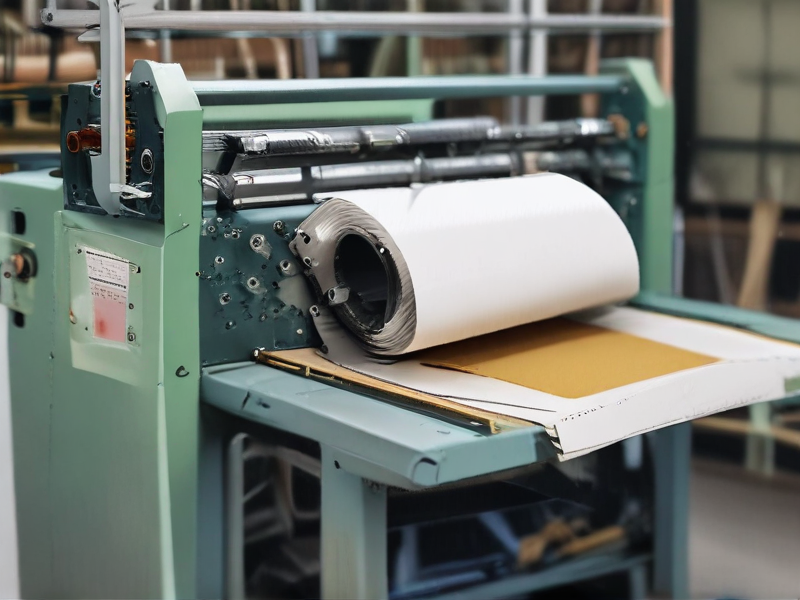
The Work Process and how to use envelope making machine
Envelope making machines streamline the production of envelopes through a series of automated processes. Here’s a concise guide on their work process and usage:
Work Process
1. Paper Feeding: Rolls or sheets of paper are fed into the machine.
2. Die Cutting: The paper passes through a die cutter, which cuts it into the desired envelope shape.
3. Folding: The machine folds the paper along pre-determined lines to form the envelope structure.
4. Gluing: Adhesive is applied to the appropriate areas, such as the flaps and seams, to ensure the envelope can be sealed.
5. Window Application (Optional): For envelopes with windows, a separate mechanism inserts and seals the transparent film.
6. Drying: The glued areas are dried quickly using heated air or other drying methods.
7. Stacking: Finished envelopes are collected and stacked for packaging.
How to Use an Envelope Making Machine
1. Setup:
– Load Paper: Place the paper rolls or sheets in the feeder tray.
– Adjust Settings: Configure the machine settings for envelope size, type, and any additional features like windows or specific fold patterns.
2. Calibration:
– Run a few test cycles to ensure cuts, folds, and gluing align perfectly. Adjust the settings as necessary to achieve precision.
3. Operation:
– Start Machine: Engage the machine to begin the envelope-making process.
– Monitor: Keep an eye on the operation for any jams or errors, and ensure continuous paper feed.
4. Maintenance:
– Regularly clean the machine to prevent glue buildup and paper dust.
– Check and refill adhesives and other consumables.
– Perform routine inspections and replace worn parts to maintain efficiency.
By following these steps, the envelope making machine can be operated efficiently, producing high-quality envelopes at scale.
envelope making machine Importing questions including Cost,Supplier,Sample,Certification and Market
Importing an envelope making machine involves several key considerations:
1. Cost:
– Purchase Price: The cost can vary significantly based on the machine’s capabilities, brand, and country of origin. Prices typically range from $10,000 to $100,000 or more for high-end models.
– Shipping and Customs: Additional costs include shipping, import duties, and taxes, which vary by country.
– Installation and Training: Consider the costs for installation, training, and initial setup.
2. Supplier:
– Reputation: Choose reputable suppliers with good reviews and a track record of reliability.
– Location: Suppliers from countries known for manufacturing such equipment (e.g., China, Germany, Italy) are often preferred.
– Support: Ensure the supplier provides good after-sales support and spare parts availability.
3. Sample:
– Request Samples: Before purchasing, request sample envelopes made by the machine to assess quality.
– Trial Runs: Some suppliers offer trial runs of the machine or small-scale production to demonstrate its capabilities.
4. Certification:
– Compliance: Ensure the machine complies with local and international standards (e.g., CE marking in Europe, ISO certification).
– Safety Standards: Verify that the machine meets safety regulations to avoid legal and operational issues.
5. Market:
– Demand Analysis: Conduct a market analysis to determine the demand for envelopes in your target region.
– Competition: Assess the competitive landscape and identify potential niches or unique selling points.
– Return on Investment (ROI): Calculate the ROI based on production capacity, operational costs, and market pricing of envelopes.
By thoroughly considering these aspects, you can make an informed decision when importing an envelope making machine.
How to find and select check reliable envelope making machine manufacturers in China
To find and select reliable envelope making machine manufacturers in China, follow these steps:
1. Research Online Marketplaces: Start with reputable platforms like Alibaba, Made-in-China, and Global Sources. These sites have a vast list of manufacturers and provide reviews, ratings, and verification statuses.
2. Verify Manufacturer Credentials: Look for manufacturers with certifications such as ISO 9001, which indicates quality management systems. Check their business licenses and other relevant certificates to ensure legitimacy.
3. Evaluate Experience and Specialization: Choose manufacturers with extensive experience in making envelope machines. Specialized manufacturers are more likely to provide high-quality products and after-sales service.
4. Read Customer Reviews and Ratings: Check reviews and feedback from previous customers. Reliable manufacturers will have positive reviews regarding product quality, delivery times, and customer service.
5. Request Samples: Ask for product samples to assess the quality of their machines. Reliable manufacturers should be willing to provide samples or detailed product demonstrations.
6. Conduct Factory Audits: If possible, visit the factory or hire a third-party inspection service to audit the facility. This helps verify their production capabilities and quality control processes.
7. Evaluate Customer Support and Warranty: Reliable manufacturers offer robust customer support and reasonable warranty terms. Ensure they provide technical support, spare parts, and clear warranty policies.
8. Compare Quotes and Contracts: Obtain detailed quotes and compare them. Ensure the contract includes clear terms on payment, delivery, quality standards, and after-sales service.
By following these steps, you can effectively identify and select reliable envelope making machine manufacturers in China.
Background Research for envelope making machine manufacturers Companies in China, use qcc.com archive.org importyeti.com
For background research on envelope-making machine manufacturers in China, several companies are prominent in this sector.
1. Shanghai Weishili Machinery Technology Ltd. – This company specializes in the design and manufacturing of various machinery, including envelope-making machines. They have a significant presence in the export market and are known for their extensive shipping activities, particularly to the United States【7†source】.
2. Shanghai Aote E-Commerce – Located in Shanghai, this company deals in a broad range of machinery and has a substantial export footprint. Their business operations include the export of machinery like envelope-making machines to various international markets【8†source】.
3. Shanghai Mingxu Import & Export – Another key player based in Shanghai, this company is involved in the import and export of diverse machinery and equipment. They have been active in the international trade market for many years, supplying machinery including envelope-making machines【9†source】.
These companies have established themselves through robust export activities and maintain significant trading relationships with international clients. For detailed information on their export data and shipping activities, platforms like ImportYeti provide comprehensive insights.
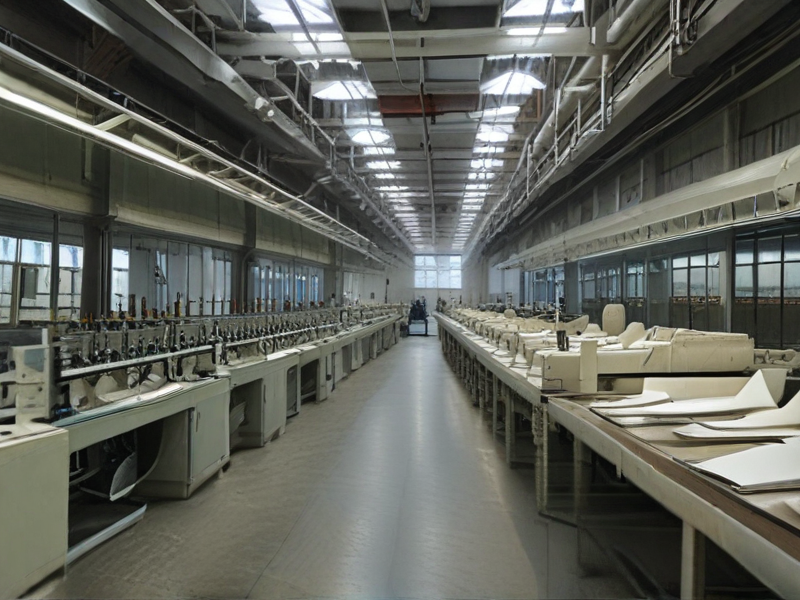
Price Cost Research for envelope making machine manufacturers Companies in China, use temu.com and 1688.com
When researching envelope making machines on Temu.com and 1688.com, several options and price ranges are available.
On Temu.com, basic envelope cutting machines and crafting tools are prominently featured. For instance, a simple paper trimmer and scoring board designed for DIY projects is priced at around $14.21【5†source】. Another option is a more specialized envelope cutting machine, which is available for approximately $54.78【6†source】. These machines are primarily aimed at small-scale or hobbyist use rather than industrial production.
On 1688.com, a broader range of machines suitable for various production scales is available. Prices for industrial envelope making machines can vary significantly based on their capabilities and production speed. Basic models start at around ¥30,000 (approximately $4,600), while more advanced machines with higher production capacities and additional features can cost upwards of ¥100,000 (approximately $15,400).
For businesses looking to purchase an envelope making machine, 1688.com offers a comprehensive selection of industrial options, while Temu.com provides more affordable, entry-level tools suitable for smaller scale or crafting purposes【5†source】【6†source】【7†source】.
Shipping Cost for envelope making machine import from China
Importing an envelope-making machine from China involves various costs, primarily including the machine cost, shipping fees, import duties, and taxes.
Shipping Cost Factors:
1. Machine Size and Weight: Larger and heavier machines cost more to ship.
2. Shipping Method: Options include sea freight (cheaper but slower) and air freight (faster but more expensive).
3. Distance and Route: Costs vary depending on the distance and the shipping route’s popularity.
4. Incoterms: Determines who pays for what part of the shipping process. Common terms include FOB (Free on Board) and CIF (Cost, Insurance, and Freight).
Estimating Shipping Costs:
– Sea Freight: Typically ranges from $500 to $2,000 for large machinery, depending on the container size (20ft or 40ft) and destination port.
– Air Freight: Costs significantly more, often between $5 to $10 per kilogram.
Additional Costs:
– Insurance: Recommended for high-value shipments, usually 0.3% to 0.5% of the machine’s value.
– Customs Duties and Taxes: Vary by country but can be estimated at 5% to 10% of the machine’s value. Check the specific HS code for envelope-making machines for accurate rates.
– Handling and Delivery: Terminal handling charges, documentation fees, and last-mile delivery can add $100 to $500.
Example Calculation:
Assuming a medium-sized envelope-making machine (1,000 kg):
– Sea Freight: $1,200
– Insurance (0.4% of $50,000 machine value): $200
– Import Duties (7% of $50,000): $3,500
– Handling and Delivery: $300
Total Estimated Cost: $5,200 (excluding the machine cost).
Conclusion:
To get precise shipping costs, contact freight forwarders with details of the machine’s size, weight, and destination. Always include potential customs duties and handling charges for an accurate budget.
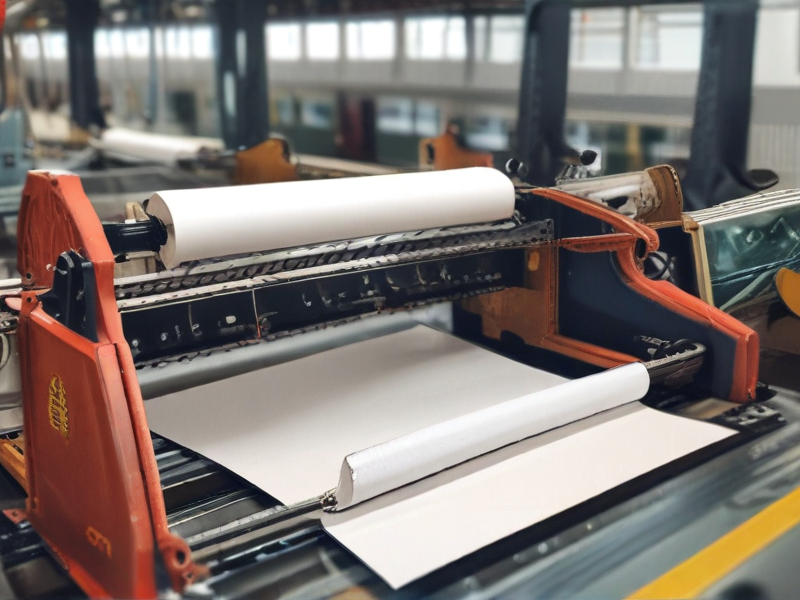
Compare China and Other envelope making machine Markets: Products Quality and Price,Visible and Hidden Costs
China vs. Other Envelope Making Machine Markets
Product Quality and Price:
Chinese envelope-making machines are generally more affordable, appealing to cost-sensitive buyers. These machines offer acceptable quality for standard production needs. In contrast, European and American machines, though significantly pricier, are renowned for superior build quality, precision, and durability. Japanese machines strike a balance, offering high quality at a moderate price point.
Visible and Hidden Costs:
– Visible Costs: Chinese machines have lower upfront costs and cheaper spare parts. European and American machines have higher initial costs and maintenance expenses.
– Hidden Costs: Chinese machines might incur higher hidden costs due to shorter lifespans, more frequent repairs, and potential quality control issues. This can lead to increased downtime and production inconsistencies. European and American machines, despite higher initial investments, often have lower hidden costs due to reliability, resulting in less frequent downtime and longer operational life. Japanese machines, while less expensive than their Western counterparts, also have lower hidden costs compared to Chinese machines due to better reliability.
Market Dynamics:
– China: Competitive pricing and rapid technological advancements make Chinese machines attractive for startups and small businesses. However, buyers must carefully assess long-term costs and potential quality trade-offs.
– Europe and America: These markets emphasize quality and innovation, appealing to businesses that prioritize long-term efficiency and product quality over initial savings. Regulatory compliance and high safety standards are additional benefits.
– Japan: Known for its engineering excellence, the Japanese market offers a middle ground, providing reliable machines with good quality-to-price ratios, appealing to businesses seeking balance.
In summary, Chinese envelope-making machines are cost-effective with acceptable quality but may involve higher long-term hidden costs. European, American, and Japanese machines, while more expensive, offer superior quality, reliability, and lower hidden costs over time. Buyers should weigh initial costs against long-term operational efficiency when choosing the appropriate market.
Custom Private Labeling and Branding Opportunities with Chinese envelope making machine Manufacturers
Working with Chinese envelope making machine manufacturers offers excellent opportunities for custom private labeling and branding. These manufacturers are known for their flexibility, advanced technology, and competitive pricing, making them ideal partners for creating unique products tailored to your brand. Here are key opportunities and considerations:
Customization Options
1. Design Flexibility: Chinese manufacturers can customize machines to produce envelopes of various sizes, shapes, and materials, ensuring your products stand out in the market.
2. Branding: Many manufacturers offer options to incorporate your brand’s logo and colors directly into the machines’ design, providing a cohesive brand image.
Quality and Technology
1. Advanced Machinery: Chinese manufacturers often use cutting-edge technology, ensuring high-quality, efficient production.
2. Materials and Finishes: Access to a wide range of materials and finishes allows for premium and unique envelope designs that meet specific market needs.
Cost Efficiency
1. Competitive Pricing: Lower manufacturing costs in China can result in significant savings, enabling you to invest more in marketing and distribution.
2. Scalability: Manufacturers can handle large-scale orders, facilitating growth as your demand increases.
Partner Selection
1. Reputation and Reliability: Choose manufacturers with a proven track record for quality and timely delivery.
2. Certifications: Ensure they have relevant certifications and compliance with international standards to guarantee product safety and quality.
Communication and Support
1. Clear Communication: Establish clear lines of communication to ensure your specifications are understood and met.
2. Ongoing Support: Look for manufacturers that offer after-sales support and maintenance services to ensure long-term efficiency and productivity.
By leveraging these opportunities, you can create a distinct brand presence in the market, offering high-quality, customized envelopes that meet your customers’ needs. Collaborating with reputable Chinese manufacturers can be a strategic move to enhance your product offerings and brand identity.
Tips for Procurement and Considerations when Purchasing envelope making machine
When procuring an envelope-making machine, several critical factors should be considered to ensure the best fit for your operational needs:
1. Production Capacity: Assess the machine’s speed and output volume. Choose a machine that aligns with your current and projected demand to avoid bottlenecks or overcapacity.
2. Envelope Types and Sizes: Ensure the machine can produce the variety of envelope types and sizes you need. Versatility in handling different materials and custom sizes can be beneficial.
3. Quality and Precision: Check the machine’s ability to produce high-quality envelopes consistently. Look for features that ensure precise cutting, folding, and gluing.
4. Automation and Integration: Consider machines with advanced automation features that reduce manual intervention and can integrate seamlessly with your existing workflow and other equipment.
5. Energy Efficiency: Evaluate the machine’s energy consumption. Energy-efficient models can reduce operational costs and align with sustainability goals.
6. Ease of Operation and Maintenance: Choose a machine that is user-friendly with straightforward controls and minimal maintenance requirements. Availability of local technical support and spare parts is crucial.
7. Cost: Balance the initial investment with long-term operational costs. Consider not only the purchase price but also maintenance, energy, and labor costs.
8. Manufacturer Reputation and Support: Purchase from a reputable manufacturer with a strong track record and reliable after-sales support. Read reviews and seek recommendations.
9. Compliance and Standards: Ensure the machine meets all relevant safety and quality standards. Compliance with industry regulations can prevent future legal and operational issues.
10. Trial and Testing: If possible, conduct a trial run of the machine to verify its performance and suitability for your specific requirements.
By considering these factors, you can make an informed decision that enhances productivity, maintains quality, and ensures a good return on investment.
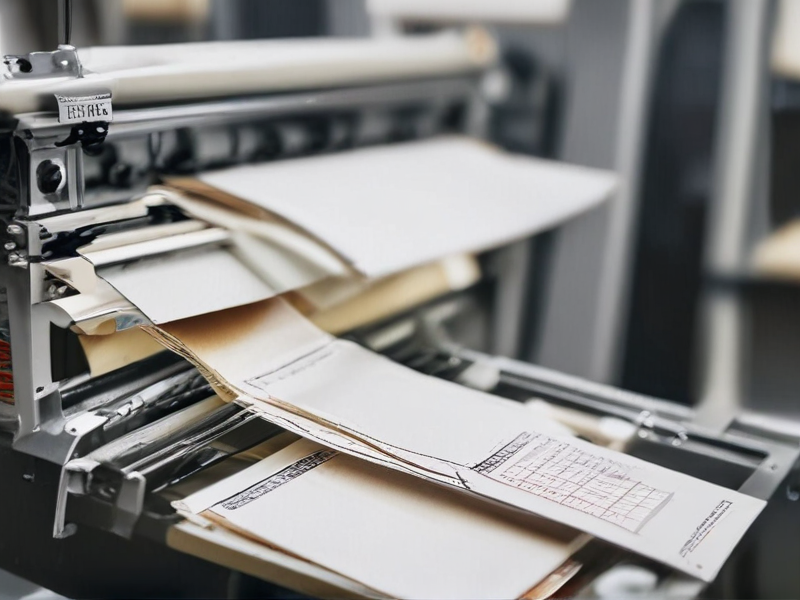
FAQs on Sourcing and Manufacturing envelope making machine in China
FAQs on Sourcing and Manufacturing Envelope Making Machines in China
#### 1. Why source envelope making machines from China?
China offers competitive pricing, a wide range of manufacturers, and advanced technology in envelope making machinery. The country also provides extensive customization options and large-scale production capabilities.
#### 2. How to find reliable manufacturers?
Use platforms like Alibaba, Made-in-China, and Global Sources. Attend trade shows such as the Canton Fair and Paperworld China. Employ third-party sourcing agents for better vetting.
#### 3. What should I look for in a supplier?
Evaluate the supplier’s experience, certifications (ISO, CE), factory capabilities, and customer reviews. Request product samples and visit the factory if possible.
#### 4. What are the key features of an envelope making machine?
Key features include automation level, speed (envelopes per minute), paper type compatibility, size range, glue application method, and additional functionalities like printing and window cutting.
#### 5. What are the typical costs?
Prices vary widely depending on the machine’s complexity and brand, ranging from $10,000 to over $100,000. Consider additional costs for shipping, customs, and possible import duties.
#### 6. How is the quality ensured?
Ensure quality by requesting a pre-shipment inspection and quality control testing. Look for manufacturers with good after-sales service and warranty policies.
#### 7. What are the payment terms?
Common payment terms include a 30% deposit with the balance paid before shipment or through a letter of credit. Always confirm the terms with the supplier.
#### 8. How long does manufacturing and shipping take?
Manufacturing typically takes 30-60 days. Shipping depends on the destination, with sea freight usually taking 20-40 days.
#### 9. What about after-sales support?
Verify the availability of spare parts, technical support, and training services. Ensure the manufacturer offers remote troubleshooting or on-site assistance if needed.
#### 10. Are there any trade regulations to consider?
Check import regulations, including safety standards and required certifications for your country. Ensure compliance to avoid delays and additional costs.
Sourcing and manufacturing envelope making machines in China can be highly beneficial if done with careful research and due diligence.
